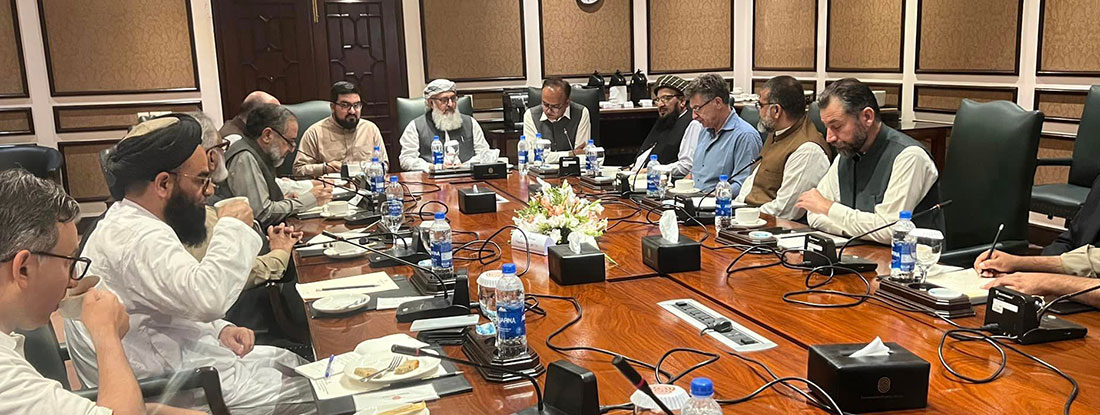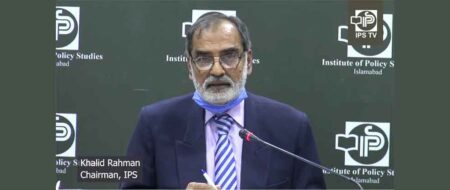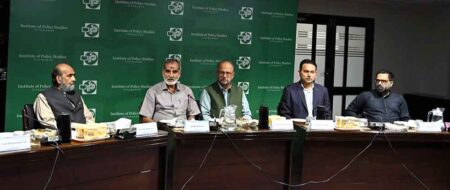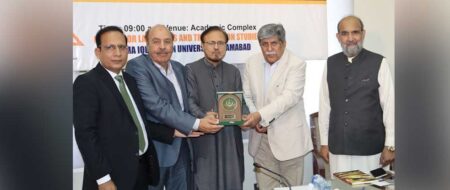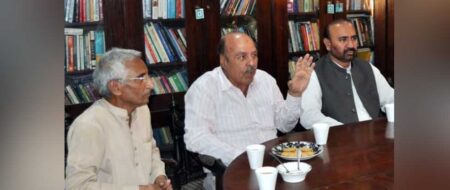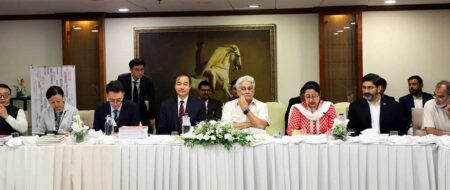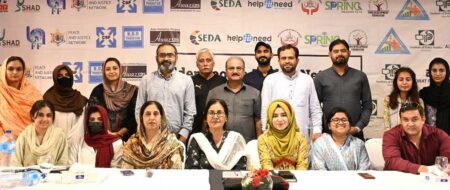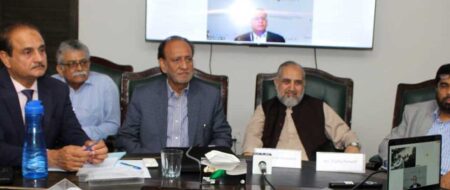Multidomain engagements with Afghanistan are crucial to address humanitarian concerns
To address the humanitarian issue in Afghanistan, the Pakistani government and policymakers need to set a substantial emphasis on forging relationships and establishing various engagements with the present Afghan Taliban leadership.
The views were shared by Ambassador Abrar Hussain, vice-chairman IPS and former Pakistani ambassador to Afghanistan, during a consultative meeting on ‘Intra-Islamic Dialogue for Stable Afghanistan,’ organized by the International Research Council for Religious Affairs (IRCRA) on May 27, 2023, in Islamabad.
The meeting was also addressed by Maulana Yousaf Shah, spokesperson Darul Uloom Haqqania Akora Khatak, Jalaluddin, advocate of Jamiat Ulama-e-Islam, Muhammad Israr Madani, president IRCRA, Maulana Tayyeb Tahiri, president Ishat-ul-Tauheed, Pakistan, Mufti Shaukat Ullah Khatak, Darul Uloom Haqqania, Malik Habib Noor Orakzai, ex-Fata tribal leader, Reema Shaukat, Institute of Regional Studies, Islamabad, Asif Luqman Qazi, head of foreign affairs Jamat Islami, Tahir Khan, journalist, Dr Mahan Mirza, director Ansari Institute for Global Engagement with Religion, Notre Dame University, USA, Professor Laurie Nathan, director, Kroc Institute’s mediation program, and others.
Ambassador Abrar stressed that interaction and building relations with the present Afghan Taliban administration must be made a top priority by policymakers and decision makers. He further said that if Pakistan wants to solve Afghanistan’s humanitarian concerns, it is crucial to understand and comprehend the needs and requirements of Afghanistan as it stands right now.
He also suggested engaging in some form of economic cooperation, commerce, and investment. It is worth noting that the majority of Afghan leadership is generally in favor of equality and equal access to education, therefore all the other delicate topics, including the education of girls and inclusive government, may be dealt with gradually.


